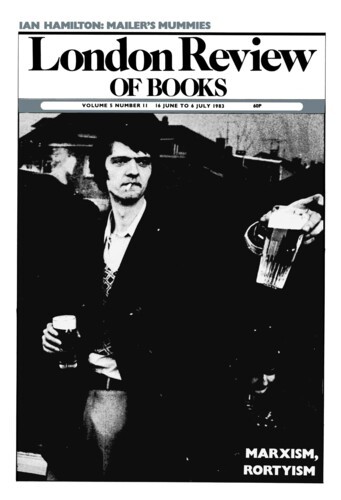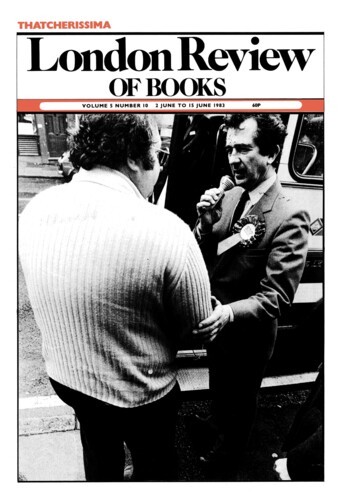Rules of the Game
Jon Elster, 22 December 1983
Raymond Aron died of a heart attack on 17 October, a few weeks after the publication of his memoirs. He died on the steps of the Paris courthouse where he had been testifying on behalf of his friend Bertrand de Jouvenel, who had been violently attacked in a book on French Fascism. The case was not a simple one, as de Jouvenel had said and done some imprudent things in the Thirties. Yet Aron, painting truth in its grey on grey, had no difficulty showing that the attack was fundamentally anachronistic: that it imputed to de Jouvenel and his contemporaries knowledge of events that had not yet occurred. In court he said that ‘nous, les hommes de cette génération, nous étions désespérés de la faiblesse des démocraties.’ In the Memoirs he is more specific: ‘il m’est arrivé par instants de penser, peut-être de dire tout haut: s’il faut un régime autoritaire pour sauver la France, soit, acceptons-le, tout en le détestant.’ The honesty is characteristic. No less typical, and more central to an understanding of his character, is the fact that he did not commit his thoughts to paper, or transform them into action. Though desperate, he was too lucid to embrace a remedy that would be worse than the disease.





